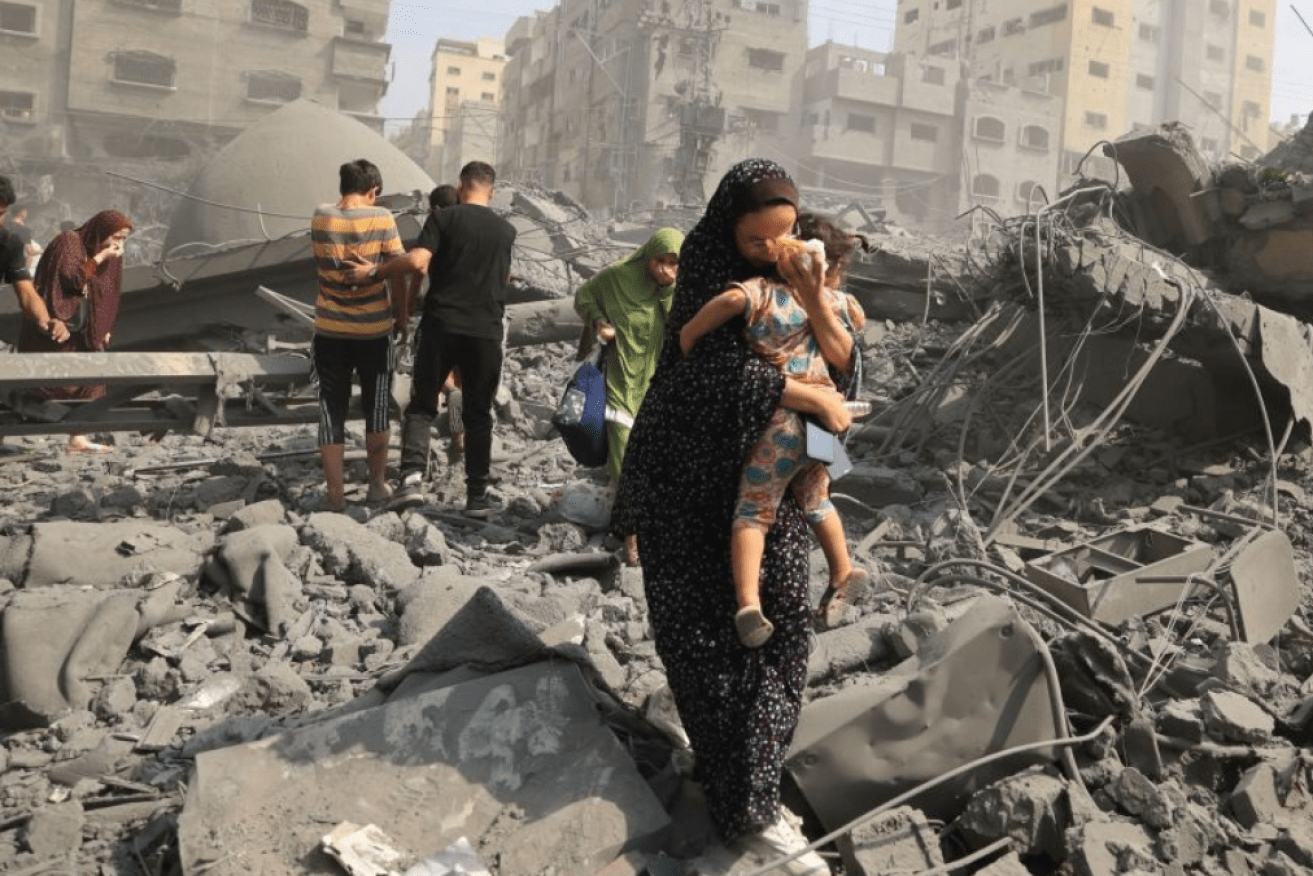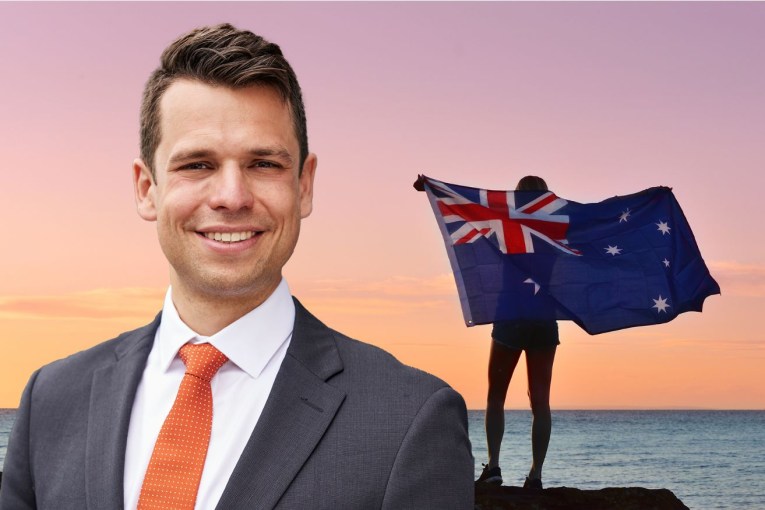Madonna King: War playing out on social media will damage our children


The scenes from Gaza are horrifying for adults to witness, let alone children watching on social media. Photo: Getty
Across Australia this week, in public and private schools, educators asked parents to delete their children’s TikTok and other social media accounts.
They’d seen a peak of a real-time war, developing on their smartphones, and could only guess at the impact on the minds of the young children they teach.
TikTok isn’t legal for those in primary school, but with no age verification requirements, pressure on parents to match the toys of the child next door, and a generation of children who have used smart devices as pacifiers, many students in year 3 and 4 are now the proud owners of a smart device.
In one piece of research I conducted last year, about half of the 1600 mothers surveyed had provided their 10-year-old with a smartphone, able to access a variety of social media platforms.
And 10-year-olds nominated their favourite apps as TikTok and Instagram, with many also praising Snapchat and Houseparty. Roblox, WhatsApp, Pinterest, Messenger, FaceTime and Minecraft were also popular, along with YouTube, WeChat and Messenger Kids.
Educators know the contagion social media spreads. Other 10-year-olds, without social media, are in the same friendship groups, sporting teams and ballet halls as their peers – and able to see and hear the material jumping out from screens.
It’s a plea we should all support, after researchers have revealed violent, distressing and horrible imagery from that war zone, including graphic posts involving the corpses of infants and children, have popped up in social media accounts.
The research was conducted by the Institute for Strategic Dialogue (ISD), which set up accounts on TikTok, Snapchat and Instagram, pretending to be 13-year-olds from the United Kingdom.

This picture taken on October 11, 2023, shows an aerial view of buildings destroyed by Israeli air strikes in the Jabalia camp for Palestinian refugees in Gaza City. Photo: Getty
And the 305 posts and videos they unearthed in 48 hours should have us all rethinking our social media footprint.
Those platforms all have policies designed to protect young users from the exact imagery researchers found. Instagram was the main offender, hosting 239 out of the sickening 305 images and posts.
For parents who haven’t heeded the call, the ISD research provides some examples of what was found – including “naked, uncovered corpses being subjected to degrading acts (urination) and the cracked skulls of infants (less than six months old)’’.
How does a child, who might still believe in the power of Santa Claus, understand such abomination?
How does a child, tucked into bed on the other side of the globe, process such hate and violence, outside of video games they shouldn’t be playing?
They can’t and the impact of much less – still photos of past wars – have been shown to instil fear into young minds. What will be the consequences, in two months, or in two years, of a child being taken to those images by a platform’s auto-suggest features?
Research has shown how this can prompt trauma, create mental health challenges, and determine a child’s behaviour.
Why would we then allow that, under any circumstances?
COVID has already left a dent in our children’s smiles. Educators say that long periods of lockdown have decreased children’s socialisation skills, and increased their reliance on social media.
But war is different. And a real-time war, where children are taken to sites where the dead bodies of those their own age pop up, is not an issue they should have to confront.
It’s an issue for us – parents and carers and policy makers. And it should prompt us all to encourage the Albanese government to support age verification measures on every single social media platform.
In the meantime, we should take the advice of those who run our schools and are dealing with the fallout of widespread social media use in children without the critical thinking skills to deal with it.
Bullying and isolation, pornography, behaviour inspired by video games and sextortion are now all issues that many school principals are dealing with daily.
But the impact of a war on the other side of the world? For the sake of our children, we need to stop this – and follow the homework many schools have now set: Remove those social media accounts that risk damaging our children’s futures.








